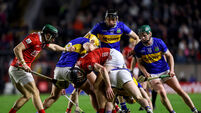Merkel fails to inspire in lacklustre campaign

A century and a half later, Angela Merkel seems to be modelling an election campaign on the musings of Germany’s ‘Iron Chancellor’; the modern day chancellor is avoiding detailed discussion of what she would do with a third term and instead emphasising her personal appeal over policy prescriptions.
In five weeks, Germans will vote in what has been billed as the most important election of the year in Europe, a continent struggling to emerge from years of financial and economic crisis.














